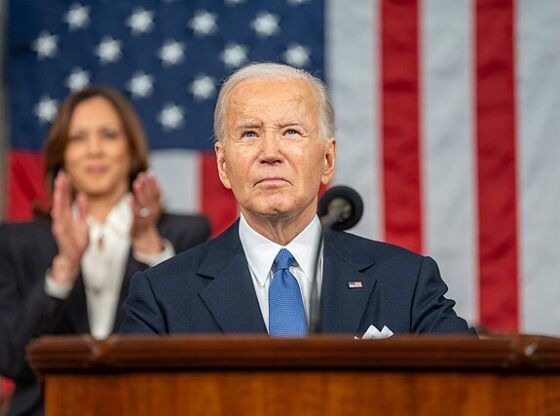On Thursday, dozens of riot police carrying zip ties walked onto Columbia University’s campus in New York City. They marched toward the campus’s south lawn, where for the previous 30 hours, dozens of students had been seated arm in arm protesting the university’s financial ties with Israel.
The police surrounded and eventually arrested the protestors one by one, putting each in a zip tie and escorting them into large police buses. Later, Mayor Eric Adams would tell the press that more than 108 arrests were made. The protestors were issued a summons for trespassing, and two were charged with obstruction of governmental administration.
The day before, at 4 a.m., the students had begun setting up dozens of tents in what they would call the “Gaza Solidarity Encampment.” On Wednesday night, the university warned the students that if they did not vacate the encampment, they would all be suspended.
Columbia’s Apartheid Divest Coalition, one of the protest organizers, made clear they would not leave until they achieved their goal: get the university to cut all financial ties with Israel. Other organizations involved included Students for Justice in Palestine and Jewish Voices for Peace.
As the officers converged on the students, one announced on a bullhorn, “Since you have refused to disperse, you will now be placed under arrest for trespassing.” The scene had become hectic; surrounding the camp, hundreds of students were chanting, “The people united, will never be defeated.” Other students shouted, “Columbia, Columbia, you will see, Palestine will be free.”
At 1:55 p.m. on Thursday, the camp had been cleared, but afterward, new protests popped up, and students began marching around campus. The next day, students were back on the south lawn, where they were told they could continue as long as they did not set up tents.
In response to a growing number of protests on campus and to limit disruption to academic life, Columbia had rolled out new protest policies in February. According to the new rules, demonstrators must register themselves two days prior. All demonstrations must be held in designated areas and restricted to Monday through Friday from noon to 6 p.m.
On Wednesday, Colombia’s president, Minouche Shafik, was also busy testifying before the Republican-led House Committee on Education and the Workforce about bias claims on campus. Shafik told the committee she was frustrated that “Columbia’s structures and policies were sometimes unable to meet the moment.”
Shafik’s hearing followed similar proceedings with Harvard’s Claudine Gay, the University of Pennsylvania’s Liz Magill, and Massachusetts Institute of Technology’s Sally Kornbluth, whom the committee questioned back in December. Following that event, Gay and Magill both resigned from their positions.
Shafik was also questioned by Rep. Ilhan Omar (D, MN) about an attack that occurred in January, where pro-Palestine protestors were sprayed with a chemical. It was later reported that Representative Omar’s daughter, Isra Hirsi, was one of the protestors arrested.
Hirsi attends Columbia’s partner college, Barnard College, which also announced it would suspend students in the encampment. Omar later posted on X about her pride in her daughter for “pushing her school to stand against genocide.”
Free speech organizations like PEN America and the New York Civil Liberties Union expressed their concern about the arrests. On Friday, the campus chapter of the American Association for University Professors expressed that they had lost confidence in the president and administration and plan to “reclaim our university.”
Protests on Columbia’s campus will continue, but it is unknown whether the NYPD will become involved again.











